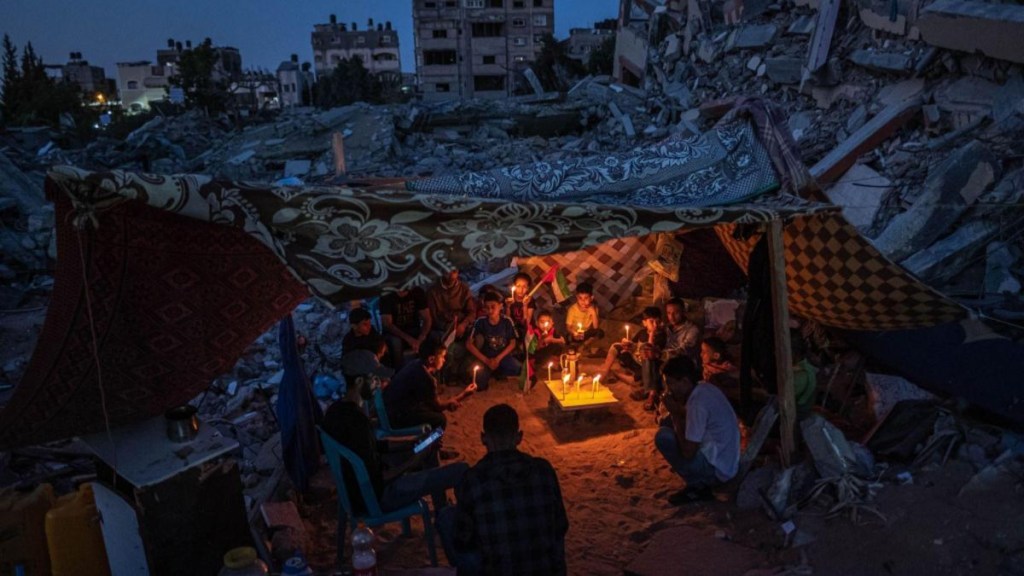The United Nations has expressed concern over Israel’s use of Artificial Intelligence (AI) to kill Hamas terrorists in Gaza. The UN says that AI should be used for the good of the world and not for large-scale war. The Israeli army uses a special AI tool known as ‘Lavender’ to selectively kill Hamas terrorists.
The special intelligence unit ‘8200’ of the Israeli Defense Forces (IDF) has invented it. There are about 37,000 Hamas targets of Hamas in the data bank of ‘Lavender’. This is the reason why the IDF has caused so much destruction in Gaza in the last seven months. Strategic experts believe that Israel’s ‘8200 Unit’ has been set up on the lines of America’s National Security Agency (NSA) and England’s CGHQ.
According to statistics, so far more than 30 thousand people have died in Gaza due to Israeli attacks. More than 10 thousand children and a large number of women are also among those who died. The reason for this is that through lavender, the Israeli army targets Hamas terrorists at home instead of on the battlefield. In such a situation, children, women and other family members present in the house are also losing their lives in the attacks. For this, Israeli forces use air strikes and targets are targeted with dumb bombs.
According to the Israeli media itself, Lavender Tool contains data of top commanders of Hamas and Palestinian Islamic Jihad (PIJ) as well as lower-ranking operatives. The Israeli government, under the leadership of Prime Minister Benjamin Netanyahu, has given the IDF a free hand to completely wipe out Hamas. After the attack on South Israel by Hamas terrorists on October 7, 2023, Netanyahu had announced the launch of Operation Swords of Iron. Under this, the IDF is allowed to target all small and big terrorists of Hamas and PIJ on the battlefield or even at home. Also, if the wife, children etc. at home become victims of collateral damage along with the terrorists, then the soldiers have been given legal protection.
As soon as the news came out that the Israeli army is using AI on the battlefield, United Nations Secretary General Antonio Guterres expressed anger over the X account. Guterres wrote that “I am deeply troubled by reports that AI has been included as a tool in the identification of targets in the Israeli military’s bombing campaign, which has resulted in large numbers of civilian casualties.” The UN Secretary-General further wrote that “AI should be used as a force for good in the world; “It should not contribute to waging war on an industrial scale, blurring accountability.”
Last year on October 7, 1200 Israeli citizens lost their lives in the terrorist attack by Hamas and about 250 people were kidnapped. Some Israeli citizens are still held hostage by Hamas terrorists. This is the reason why Israel’s anger against Hamas is wreaking havoc in Gaza.
Meanwhile …
On Friday at the United Nations, India abstained from voting as the UN Human Rights Council adopted a resolution, urging accountability for possible war crimes and crimes against humanity in Gaza.
Alongside Georgia, Japan, and the Netherlands, India chose to abstain, aligning with its traditional stance on similar resolutions concerning the human rights situation in occupied Palestinian territory.
Despite abstaining from this particular resolution, India supported three other resolutions endorsed by the UN’s top human rights body. These resolutions affirmed the Palestinian people’s right to self-determination, expressed concerns about human rights in the occupied Syrian Golan, and denounced Israeli settlements in occupied Palestinian territory.
India’s decision to abstain reflects its nuanced approach to the complex situation in the region. While expressing concerns about reported human rights violations and breaches of international humanitarian law, India continues to advocate for accountability and dialogue to address the root causes of the conflict.
The abstention comes in the wake of heightened tensions following the killing of seven international aid workers in an Israeli strike in Gaza, drawing condemnation globally. While recognizing the need for accountability for all violations of international humanitarian law, India remains committed to promoting peace and stability in the region through diplomatic channels.
Unlike legally binding resolutions, Human Rights Council resolutions serve to increase diplomatic pressure and influence national policy decisions. India’s abstention underscores its commitment to a balanced approach and the pursuit of constructive engagement to resolve the longstanding conflict in the Middle East.

